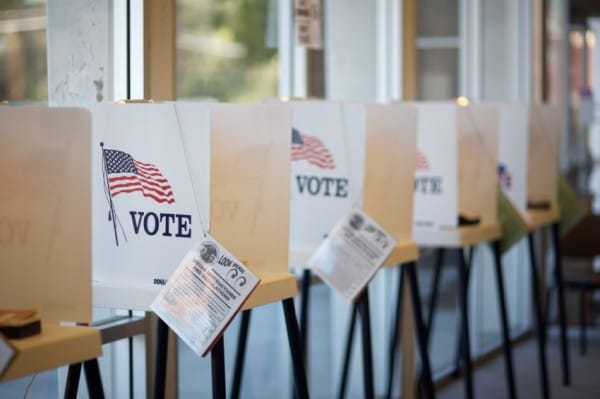Political Parties Argue for 'Constitutional Right' to Be on Ballot

Credit: LA Weekly

In anticipation of the next court hearing in June, opponents of California's top-two nonpartisan primary filed another brief on Tuesday, May 21.
The Rubin v. Bowen case is one of the long lasting lawsuits against Proposition 14, which created a top-two nonpartisan primary system in California after being approved by voters in 2010. The plaintiffs opposing the new system include members of the Green Party, California Democratic Party, Libertarian Party, and the Peace and Freedom Party.
In the briefs submitted on Tuesday, the plaintiffs repeat the same arguments they have been making since the beginning of the trial in November 2011. Among these arguments is a reiteration that political parties have a "constitutional right" to be on the November ballot.
This is the same argument rejected by the 9th Circuit Court of Appeals in a case brought by the Republican Party challenging Washington state's nonpartisan primary. In fact, California's Proposition 14 was amended by its authors to specifically comport with the 9th district's ruling.
This continued opposition to the top-two primary by minor parties, their members, and their candidates lies on a misunderstanding of the essence of the reform. By voting in favor of Proposition 14, voters decided to put their right as citizens to pick whomever they want in June -- regardless of party affiliation -- before the right of private organizations -- the parties -- to have a guaranteed spot in November.
Where the plaintiffs saw a maneuver to discriminate against minor parties, Californians actually saw an opportunity to break free from the partisan electoral structure. With this lawsuit, the plaintiffs are arguing that their right as parties to be on the ballot in the general election supersedes the right of Californians to choose a nonpartisan primary system, whereby all candidates and voters participate equally.
The plaintiffs point out that the top-two primary system resulted in less minor party candidates to reach the general election than in the past. While this is true, it does not take into account the fact that while more minor party candidate were on the November ballot under the old system, not a single third party or non-partisan candidate actually won an election in the last 100 years in California.
Besides, the authors of Proposition 14 continue to argue that the nonpartisan primary isn't about candidates, its about voters. The measure was adopted with the hope that changing the electoral process would change California's political environment by forcing candidates, regardless of party affiliation, to be responsive to the entire electorate, not just their partisan base. Minor parties would be better off spending resources to target districts where they can actually win under the new system (like a Green in San Francisco?), instead of fighting for their old spots on the general election ballot that guaranteed defeat.



